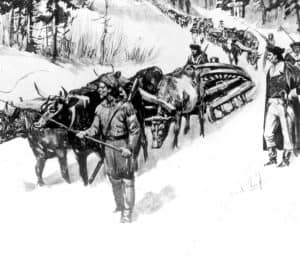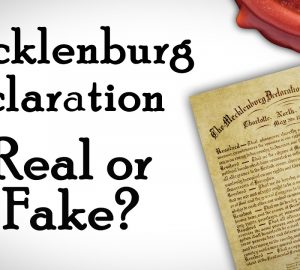
Today is the 281st birthday of George Washington, born February 22nd. His birthday has been celebrated ever since the revolution, and it was made an official federal holiday in 1879. In 1971 it was moved to third Monday in February and turned into a celebration of the presidents as Presidents Day. It officially still is George Washington’s birthday, although strangely enough the dates on which it can fall, February 15 – 21 do not cover either February 11, Washington’s birthday according to the Julian calendar, in use in America at the time, or February 22, the date in the Gregorian calendar.

But more important than the date on which his birthday is celebrated is how we remember him. George Washington truly was, “first in war, first in peace, first in the hearts of his countrymen.” He led the Continental army through the War for Independence, led the nation to form the government in the Constitutional Convention, and served as the first president. Although he is by no means a perfect man, his actions fundamentally changed America for the better.

Washington is most commonly remembered with his Farewell Address, when he preformed one of the most important acts of his life by declining to run for a third term as president, thus stopping the presidency from turning into a monarchy with elections being only a formality. The Farewell Address is read every year on this day in the United States Senate, a custom that dates back to the times of the Civil War, when George Washington was the greatest hero in both the North and the South. In his Address he gave warnings to the people of America, and advice how to preserve a free nation. You can read it in full here, one section is below.
It is important, likewise, that the habits of thinking in a free country should inspire caution in those entrusted with its administration, to confine themselves within their respective constitutional spheres, avoiding in the exercise of the powers of one department to encroach upon another. The spirit of encroachment tends to consolidate the powers of all the departments in one, and thus to create, whatever the form of government, a real despotism. A just estimate of that love of power, and proneness to abuse it, which predominates in the human heart, is sufficient to satisfy us of the truth of this position. The necessity of reciprocal checks in the exercise of political power, by dividing and distributing it into different depositaries, and constituting each the guardian of the public weal against invasions by the others, has been evinced by experiments ancient and modern; some of them in our country and under our own eyes. To preserve them must be as necessary as to institute them. If, in the opinion of the people, the distribution or modification of the constitutional powers be in any particular wrong, let it be corrected by an amendment in the way which the Constitution designates. But let there be no change by usurpation; for though this, in one instance, may be the instrument of good, it is the customary weapon by which free governments are destroyed. The precedent must always greatly overbalance in permanent evil any partial or transient benefit, which the use can at any time yield.
Of all the dispositions and habits which lead to political prosperity, religion and morality are indispensable supports. In vain would that man claim the tribute of patriotism, who should labor to subvert these great pillars of human happiness, these firmest props of the duties of men and citizens. The mere politician, equally with the pious man, ought to respect and to cherish them. A volume could not trace all their connections with private and public felicity. Let it simply be asked: Where is the security for property, for reputation, for life, if the sense of religious obligation desert the oaths which are the instruments of investigation in courts of justice ? And let us with caution indulge the supposition that morality can be maintained without religion. Whatever may be conceded to the influence of refined education on minds of peculiar structure, reason and experience both forbid us to expect that national morality can prevail in exclusion of religious principle.





